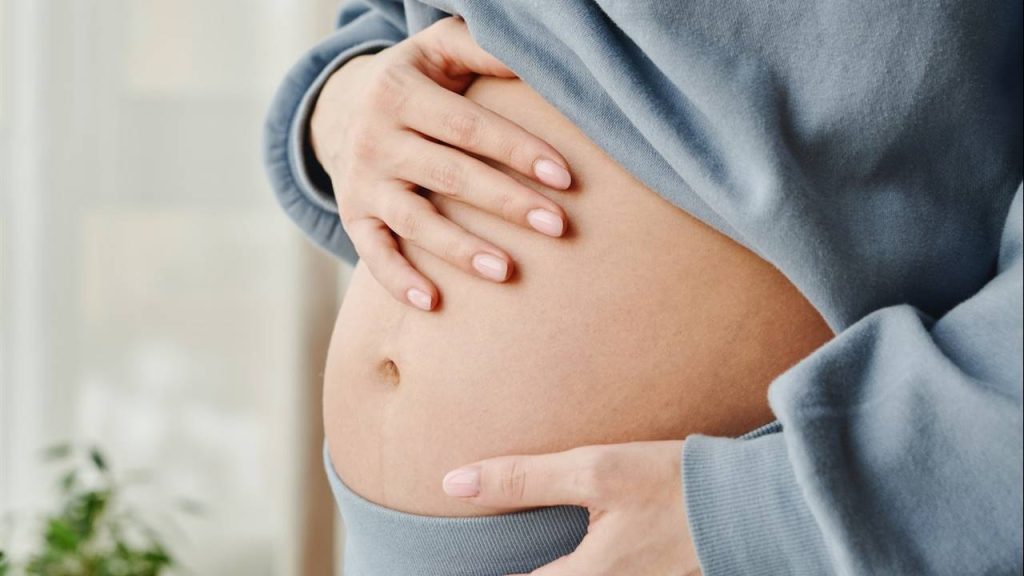During pregnancy, many changes occur in a woman’s body and some affect the risk of gum and tooth problems. That is why extreme care with soft means is convenient.

Hormonal changes that occur in the body during pregnancy affect the mouth: the gums loosen and blood flow increases. In addition, the activity of the immune system is also reduced, which increases the risk of virus infections and bacteria have fertile ground. In addition, the composition of the oral microbiota is modified. All these changes promote inflammation of the gums and make it necessary to take special preventive measures.
The saying “every pregnancy costs a tooth” is not literally true, but it does increase the risk. A study of some 34,000 participants from 14 European countries and Israel concluded that the more children’s women had, the greater the risk of losing teeth in their lifetime.
GINGIVITIS OF PREGNANCY
Many pregnant women suffer from what is known as pregnancy gingivitis, an inflammation of the gums. Normally, the gums enclose the tooth like a well-fitting cuff and prevent bacteria from migrating into the depths. When suffering from gingivitis, which is also common regardless of pregnancy, the gums swell, red and bleed easily.
It is not harmless, but it can be reversed. However, without treatment, periodontitis can occur: the fibers that hold the teeth and jaw bone are destroyed as a result of inflammation. Teeth become loose and may even fall out. And the infection can spread beyond the oral cavity throughout the body.
PREVENT THE RISK OF TOOTH DECAY
Tooth decay can also become a problem for expectant mothers. One reason is the cravings for sweets that some pregnant women develop. Another factor is vomiting during pregnancy. When stomach acid enters the mouth, it attacks the enamel and increases the risk of cavities. It is essential to rinse your mouth with water after vomiting and brush your teeth after at least half an hour.
Some pregnant women feel so nauseous that even putting a toothbrush in their mouth makes them want to vomit. In these cases, it is recommended that you talk to your dentist about it. As a temporary solution you can resort to oral rinses, for example.
CHECK YOUR TEETH REGULARLY
An examination is recommended early in pregnancy or, if possible, before pregnancy. Pregnant women should schedule another appointment at the end of the second trimester, if possible. In addition, the dentist will be able to provide information about the child’s oral health and dental care.
In many cases a professional dental cleaning is recommended. Many people think that you should not go to the dentist during pregnancy, which is a mistake. Rather, it’s about weighing the benefits and risks of treatments during pregnancy.
SYSTEMATIC TOOTHBRUSHING
The most important thing to prevent problems or slow down gingivitis is good oral hygiene. That means brushing your teeth in the morning and evening, for at least two minutes each time.
First the chewing surfaces are cleaned, then the outer surfaces and then the inner faces of the teeth. Do not rub hard, as these damages the teeth in the long run. Better place the toothbrush at a 45-degree angle over the gum line and pass it gently.
By the way, almost 40% of tooth surfaces are in the interdental spaces and you can’t get there with a toothbrush, so you need additional tools like flossing or interdental brushes.
PROPER CARE OF INTERDENTAL SPACES
Flossing or so-called interdental brushes are used to clean the spaces between the teeth. If the teeth are crowded, it can also be used to clean the contact points where the teeth meet.
It is best to get advice on the right interdental brush at the dentist’s office, because there are different sizes. If the brush is too small, it will not clean properly. If it is too big, you can hurt yourself with it.



